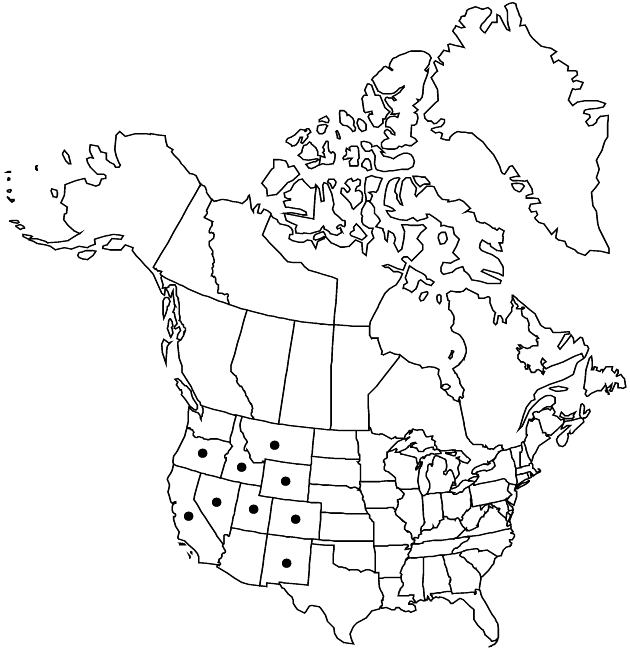Tetradymia spinosa
Bot. Beechey Voy., 360. 1839.
IllustratedEndemic
Shrubs, 10–100 cm. Stems 1–5+, erect or spreading, spiny, evenly pannose. Leaves: primaries forming recurved spines, 5–25 mm; secondaries linear-filiform to spatulate, 3–25 (× 1–2) mm, glabrous or glabrescent. Heads 1–2 (in axils of spines). Peduncles 5–30 mm. Involucres hemispheric, 8–12 mm. Phyllaries 4–6, oblong to ovate. Florets 5–8; corollas pale to bright yellow, 6–10 mm. Cypselae 6–8 mm, copiously pilose (hairs 9–12 mm); pappi of ca. 25, subulate scales 6–9 mm. 2n = 60.
Phenology: Flowering spring.
Habitat: Usually sandy soils of alkali sinks, shadscale scrub, pinyon-juniper woodlands
Elevation: 800–2400 m
Distribution
Loading map...

Calif., Colo., Idaho, Mont., Nev., N.Mex., Oreg., Utah., Wyo.
Discussion
Selected References
None.
Lower Taxa
None.
